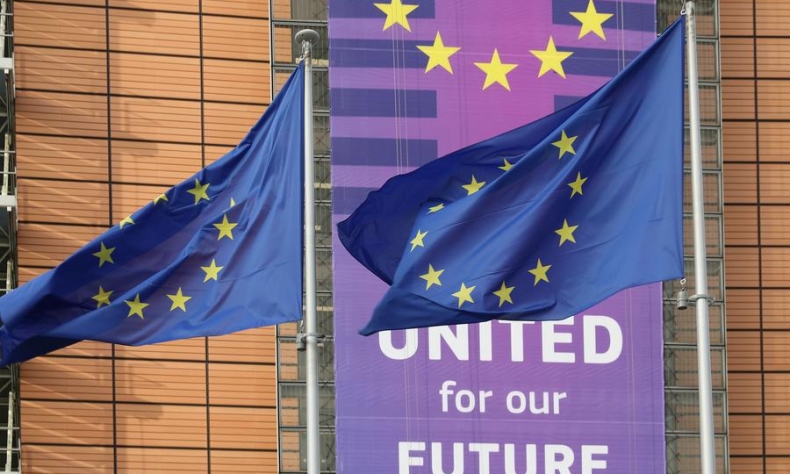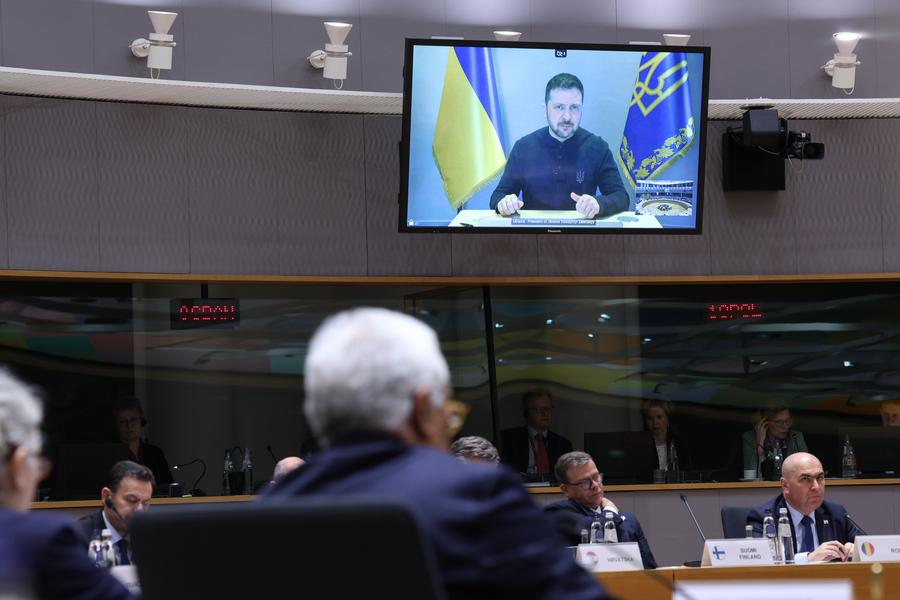Europe: To Be Or Not to Be?

Unless the continent reaches a political union, it is unlikely to become a true major geopolitical actor.
At the start of Ursula von der Leyen’s first incumbency as president of the European Commission, she announced that hers would be “a geopolitical commission.” Echoing this pronouncement, the EU’s High Representative for Foreign Affairs and Security Policy Josep Borrell said, “The European Union has to learn to speak the language of power.” Europe claims “strategic autonomy,” full independence in making its own decisions, and wants to be “a moderating power” in the international arena. But an indispensable condition to speaking the language of power is to have the instruments of power, otherwise, that language will be shallow.
The economy (including GDP, industry, foreign trade, and technology) and military force are the basic instruments of power, the rails on which geopolitical strength flows. The underpinnings of military force are a state’s economic, technological, and industrial capacities. Europe is lagging in all of these areas. Two recent reports by Mario Draghi and Enrico Letta analyze the problems of the European economy and suggest solutions. Let us hope that these reports will not suffer the same fate as previous attempts to upgrade the growth, productivity, and technological level of Europe.
The first was the Lisbon Agenda of 2000, which envisioned the transformation of Europe into a “knowledge economy that was more competitive and dynamic before 2010.” The second was the report “Europe 2030,” commissioned by the European Council to a group of sages led by Felipe González, published in 2010. In view of the lack of results of the Lisbon Agenda, the report defined Europe’s dilemma as “reform or decay,” a point reiterated by the Draghi report. It again proposed that Europe’s lagging competitiveness and technological gap in relation to that of the U.S. and China needed to be addressed. It discussed how Europe had a chance to lead the fight against climate change, provided it acted quickly, preempting others from so doing. In fact, China, with its advances in green technologies, took up the mantle.
Therefore, the Lisbon Agenda and the “Europe 2030” report recognized existing problems and devised solutions, but did not act on them. The political will was missing. This had already happened with the proposals of Francois Mitterrand, when he was president of France, “to create a European confederation that included Russia,” and of then German Chancellor Angela Merkel, for Europe “to take its destiny in its own hands.” Had those warnings been followed, history might have taken a different course.
After having a strong economic and technological foundation, the second and decisive instrument of geopolitical power is a muscular military capacity. The defense of Western Europe since the end of World War II has been guaranteed by the U.S. within the framework of NATO. After the end of the Cold War, Central and Western European members of the former Warsaw Pact became members of NATO. When a country, or a group of countries, entrust their defense to another, they are, by definition, a protectorate. And what can the protected party deny the guarantor of its security, the most precious of political assets? An elementary geopolitical truth is that states that do not pay for their own defense in tax money, pay it in swathes of their sovereignty. Now the European Union members seem ready to increase their defense expenditure and do it in a more coordinated and effective manner, developing their own defense industry. The new European Commission has, for the first time, a defense commissioner.

But so far foreign and defense policies are not in the hands of Brussels, rather they are in the hands of the member states. Decisions can only be taken by unanimity. Therefore, the veto of a single member state is sufficient to prevent all of Europe from speaking with one voice and acting with one will. It is hard to see how, without moving towards a political union, European defense can take shape or Europe can become a true major geopolitical actor.
Europe remains a work in progress. Political union, a federal Europe, was the ultimate goal of the founding fathers. One of them, Jean Monnet, wrote the following in his memoirs, published over 60 years ago, “The European countries must still undergo great trials to understand that the only alternative to political union is growing irrelevance.” Are the economic, technological deficiencies pointed out by Letta and Draghi in their reports, the Brexit, the wars in Ukraine and Gaza, the return of an imperial Donald Trump to the White House, not enough? There are important differences between the United States and Europe. A trade war would seriously damage Europe, being far more dependent on foreign trade than the U.S. In fact, the resistance of Europe and American multinationals forced Joe Biden to move from decoupling to de-risking. The U.S. withdrawal from the Paris Agreement on climate change runs against one of the main priorities of European policy. Trump’s statements on Greenland as well as Gaza have left the Europeans flabbergasted.
In reaction to some of Trump’s actions during his first presidency, Merkel said that Europe has to take its destiny into its own hands. Her Foreign Minister, Heiko Maas, in an article in Foreign Affairs, was far blunter when he wrote, “A strong and sovereign Europe is the answer to Trump’s hostility. There is no alternative to an autonomous Europe.”
The first reactions of Germany and France to Trump’s early pronouncements in his second incumbency have been to demand more unity and sovereignty for Europe. Italian President Sergio Mattarella was more decisive in a speech he gave on February 6. He said, “Does Europe intend to be just the object in the international dispute, an area where others may exert their influence, or does it wish to become a subject of international politics for affirming the values of its own civilization? Can it accept being caught between oligarchies and autocracies? At most, with the perspective of a ‘happy servitude,’ we must make a choice: Will we be protected or key players?”
Along the same line, Spanish Foreign Minister José Manuel Albares declared to the Financial Times on February 24, “The European Union should take its own decisions on China, and not ape the Trump administration’s confrontational stance. China is indispensable for things as vital as climate change, and we need to have an engagement.” This approach fully coincides with China’s, as reiterated by Chinese Foreign Minister Wang Yi on March 7, “China remains confident in Europe, and believes it can be a trustworthy partner.”
Will the European states accept that the European Union remains a mere economic space, with their separate sovereignties reduced to empty shells? Or will they, taking advantage of the electric shock administered by Trump, decisively move towards political union, creating a geopolitical entity able to sit around the same table with the U.S. and China? It is the existential question: To be or not to be?
Eugenio Bregolat is a former Spanish diplomat who was three-time ambassador of Spain to China.
 Facebook
Facebook
 Twitter
Twitter
 Linkedin
Linkedin
 Google +
Google +










